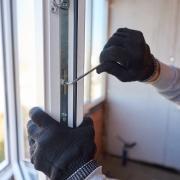How Long Do Windows Last?
Windows are a crucial part of any home and help protect the inside from weather. In addition, they provide adequate lighting and ventilation.
This makes it important to understand how long windows will last before replacing them. There are several factors that will determine their lifespan.
Vinyl
Vinyl windows are a popular choice for homeowners, thanks to their energy efficiency and cost-effectiveness. They’re also easy to maintain and can be painted for a custom look.
Vinyl window frames are made from a resilient plastic polymer, which is commonly called polyvinyl chloride (PVC). They’re typically formed using additives to help resist sun degradation and improve insulation.
However, the polymer itself can also warp or melt when exposed to heat, especially in hot climates. This can cause the window frame to sag over time, which may interfere with operation or lead to leaks between panes of glass.
Another potential problem is that some vinyl windows don’t have a strong enough frame. This could make them susceptible to separation at mitered corners, a gap that can lead to water damage and mold buildup.
Wood
Wood windows are a classic and timeless design that can add to the value of your home. It can also be a great way to create a warm and inviting atmosphere in your home.
The lifespan of wood window frames depends on how well they are maintained and how often you clean and inspect them. Keeping them painted, for example, can ward off termites and other insects that could otherwise harm them.
In addition, wood windows are very energy efficient because they can insulate your house from the outside cold. This insulation can help lower your heating and cooling costs, especially in warmer climates.
Aluminum
Aluminum is one of the most durable window frame materials. It can last up to 30 years if the windows are in a good condition and have no weather damage.
Aluminum frames are also much more resistant to warping and rotting compared to other frame materials. This makes it a good option for older homes that are prone to wood decay.
Aluminium frames are also environmentally friendly, unlike UPVC which is notoriously harmful to the environment and can release chemicals into the air and water. In addition, they are 100% recyclable, which means that you can easily reuse them multiple times over.
Fiberglass
Fiberglass windows are a great choice for your home if you want to increase energy efficiency. They absorb heat and help keep the temperature inside your house consistent.
They are also moisture resistant and do not rot, so they won’t damage your walls or other materials. In addition, they are easy to maintain and won’t warp or corrode like vinyl.
However, they are not the best option for homeowners who live in cold climates. They may not last as long as other window types, and they are prone to paint scratches.
They are available in a variety of colors and designs. They also have a thin frame, which is ideal for maximizing views.






